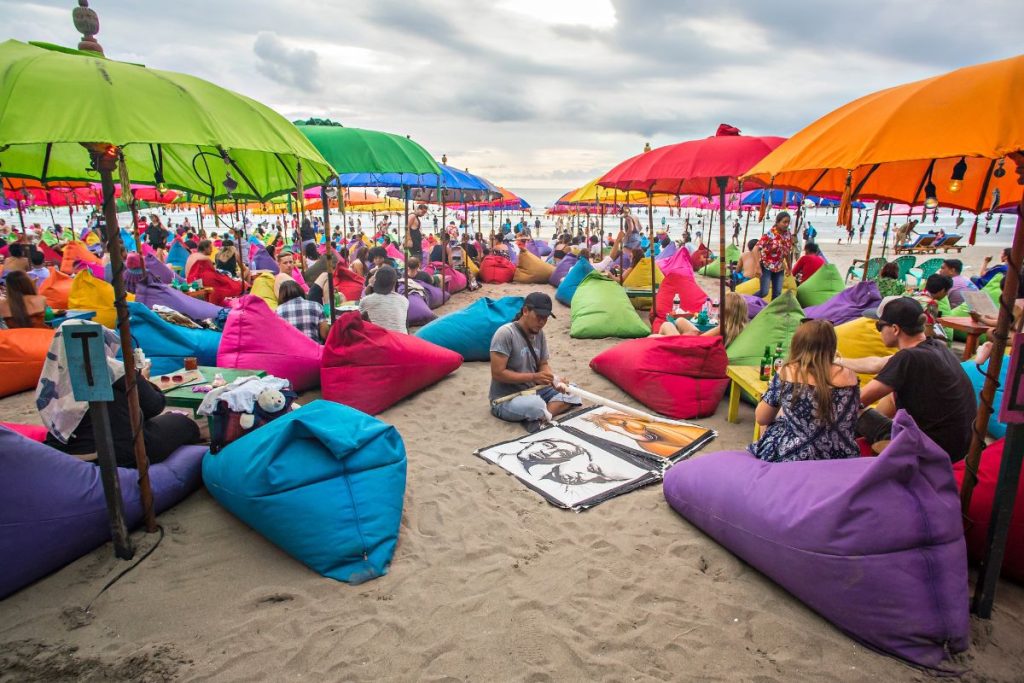With its breathtaking beaches, rice terraces, yoga retreats and waterfalls, Bali is one of the most visited destinations in Asia. But is the atmosphere changing in Bali? Is it still a good one? choice for digital nomads?
The hard truth is that the rise of tourism has given rise to problems of overpopulation and environmental concerns that stem from our collective wanderlust. This increase has translated into an expansion of hotels, increased waste and reduced resources for local residents. As we enjoy our refreshing drinks, it is easy to overlook the fact that certain parts of Bali are experiencing a water shortage.
Bali is breathtakingly beautiful. However, the increase in tourism has led to an alarming increase in pollution, especially plastic waste. We are talking about an island where the enormous amounts of rubbish washing up on the usually beautiful beaches have led to the declaration of a “garbage emergency”.
Bali is steeped in spirituality, tradition and a rich history. It is essential to show respect for the deep-rooted customs of Balinese culture, which are known for their multifaceted and complicated nature. Unfortunately, tourists often treat temples as if they were mere settings for fashion photographs, ignoring appropriate clothing and bypassing sacred areas in search of picturesque snapshots.
Bali is one of the top travel destinations for digital nomads worldwide for almost ten years.
Thanks to reliable WiFi, budget-friendly accommodation and customizable visa choices, the holiday island has effectively catered to a significant number of digital nomads.
Especially in the post-pandemic era, when remote working became the standard, an even greater number of individuals managed to create an online working model that gave them the freedom to operate from any corner of the world.
Bali has witnessed a significant increase in tourism development, which has led to increased tensions on the island due to a notable increase in the misbehavior of foreign visitors.
A quick look at the Instagram stories shared by the Bali community accounts is enough to reveal that there is a dispute about it whether Bali is currently a digital nomad paradise or presents challenges for them.
Certain individuals believe that digital nomads living in the province should refrain from voicing grievances or dissatisfaction over issues such as traffic congestion, rising housing costs, ongoing construction or even incidents such as garbage fires.
Christa Romano, originally from the US, shared her thoughts on living in Bali as a digital nomad: “I’ve been living in Canggu, Bali for the past four years and if I’m honest, this city specifically isn’t as magical as they are. was before the pandemic. Most of the rice fields are now covered in concrete and the beaches are not necessarily relaxing anymore with the number of people here now. That said, I still love living in Canggu and will probably continue to live here for many years to come, even as it gets busier and busier. There are few places in the world where you can have access to this high level of dining, entertainment and fitness centers, while also having access to the beach and a rich local culture.”
“I also love how international and entrepreneurial it is here! I mean, yes, I wish I didn’t have to make dinner reservations and could just walk into any restaurant like I used to, but it’s a small price to pay for all the great things that come with living here. Again, I’m talking about Canggu. Ubud is definitely busy too, but so is Positano in the summer and that doesn’t stop anyone from going there, you know? Let’s not forget that Bali is a big island; perhaps overtourism in the hotspots will lead to some of the less developed areas getting a small tourism boost, which could help their economies.” she added.
Dan Wisely, originally from Cape Town, told reporters from The West Australian how he felt during his first visit to Bali.
“I remember coming here the first time and feeling super inspired. All my friends here were doing something really cool with their lives,” he shared.
However, he acknowledged the isolation that living on an island can bring and the challenge of connecting with the right people from expat and digital nomad communities.
However, a new generation of digital nomads may not be long in coming as Bali continues to expand access to flights and offer additional visa alternatives for high-earning investors and remote workers.





